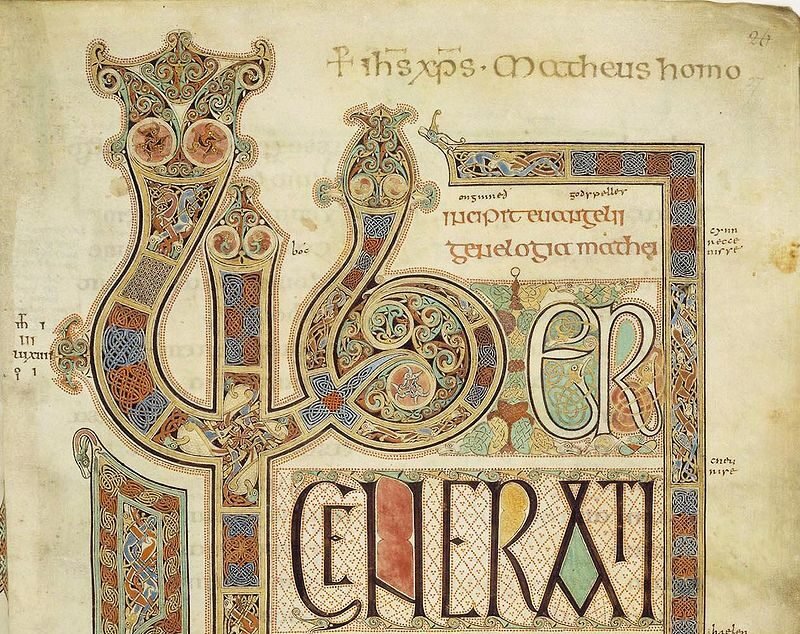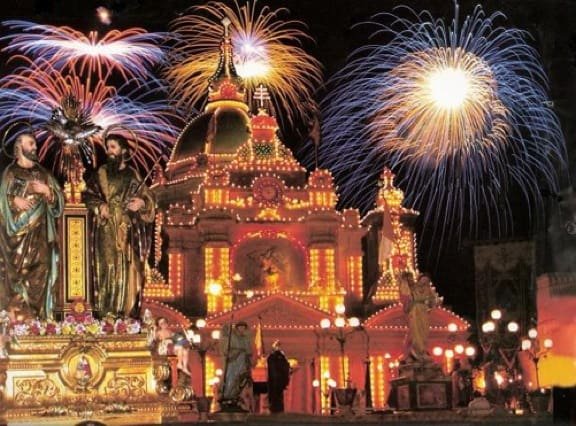Chronos, Kairos and Aion are the three deities of time, events and epic destinies. Here is the multi-religious and multicultural calendar!
Find us on our website Mythology and Legend, on Facebook and on instagram !

The schedule in brief from D-2 to D+5
- 28 June 2024, Daily: Mnarja
- 30 June 2024, Daily: Alarde de San Marcial
- July 2, 2024, : Lwiindi-Gonde
- July 2, 2024, : Palio di Siena
- 3 July 2024, Daily: Days of the Dog
The complete interactive calendar
Holidays of the month
| Mymonday | Killtuesday | Wednesdaywednesday | ThuThursday | Frifriday | Satsaturday | Sunsunday |
|---|---|---|---|---|---|---|
27May 27, 2024 | 28May 28, 2024 | 29May 29, 2024 | 30May 30, 2024 | 31May 31, 2024 | 1June 1, 2024 | 2June 2, 2024 |
3June 3, 2024 | 4June 4, 2024 | 5June 5, 2024 | 6June 6, 2024 | 7June 7, 2024 |
8June 8, 2024●●(2 events) Lindisfarne –  Today, the Asatrus celebrate Lindisfarne Day. On June 8, 793, the monastery of Lindisfarne was pillaged by a Viking raid. This day marks the golden age of the Vikings, known mainly for raids in Europe, but especially for fine explorers and traders from the lands of northern Europe. Vikings is not a people but only a name. #mythology #myth #legend #calendar #8June #Vikings #Asatru #Lindisfarne Rosière –  Today, and since the 5th century CE, French towns have chosen La Rosière. The tradition consists, originally, of giving a crown of roses (hence the name) to the young girl whose irreproachable conduct, virtue, piety and modesty have marked the village. This was instituted by Saint Médard in 525 in Salency in Oise. #mythology #myth #legend #calendar #8June #France #rosière |
9June 9, 2024●(1 event) Siegfried –  Today, the Asatrus celebrate Siegfried (or Sigurd). Legendary Germanic hero, probably inspired by the great Germanic and Merovingian kings, Siegfried is one of the most important characters in Germanic/Norse mythology. He is the hero of Nibelungenlied, the Völsunga saga, and the Poetic Edda. Literature is as imposing as the Arthurian tradition in the Celtic world. #mythology #myth #legend #calendar #9June #Asatru #Siegfried #Germany |
10June 10, 2024 |
11June 11, 2024●(1 event) Lendit Fair –  Today, and for two weeks, the Lendit fair takes place in the Saint-Denis plain in France. Becoming the largest fair in Europe since the 9th century CE, with the grandson of Charlemagne, the fair is known for having goods from the known world. #mythology #myth #legend #calendar #fair #France #SaintDenis #June 11 | 12June 12, 2024 | 13June 13, 2024 | 14June 14, 2024 | 15June 15, 2024 | 16June 16, 2024 |
17June 17, 2024 | 18June 18, 2024 | 19June 19, 2024 |
20June 20, 2024●●(2 events) EgungunJune 20, 2024  Today the Yoruba begin the festival of Odun Egungun. Egungun mask dance clothes are worn for ancestor worship. A dancer wears several layers, being able to change costumes during the performance. The costumes have particular meanings, depending on the peoples and villages. #mythology #myth #legend #calendar #June 20 #egungun #yoruba IncwalaJune 20, 2024  Today, the Kingdom of Eswatini celebrates Incwala for a month. This feast in honor of the king includes many ancestral rituals such as lusekwane, kuhlamahlama, and umdvutjulwa #mythology #myth #legend #calendar #June #eswatini #incwala |
21June 21, 2024●●(2 events) lithaJune 21, 2024  On this day, the Celts, Germans and Saxons celebrated Litha, the summer solstice. This period would be favorable for magic such as love, healing, protection. It was replaced by the Christian feast of Saint John which keeps the rites. #mythology #myth #legend #calendar #litha #saintjean #June 21 Midsummer –  On this day, many Germanic/Norse peoples celebrated Midsummer (Midsumor or Midsommar). As the solstice has been observed since Neolithic times, many peoples have performed rites on this particular day. Little by little dominated by Christianity during the Middle Ages until the early Middle Ages, the customs were incorporated into the feast of Saint John on June 24, then the only one authorized during the solstice. #mythology #myth #legend #calendar #June 21 #midsummer #midsumor #midsommar | 22June 22, 2024 | 23June 23, 2024 |
24June 24, 2024●●(2 events) Jaanipäev –  Today, Estonians celebrate Jaanipäev (Saint John). The pre-Christian roots endure. Jaanipäev marks a change in the agricultural year, particularly the break between the end of spring sowing and the hard work of summer haymaking. Dancing, singing and jumping over a bonfire are also rites of this region. #mythology #myth #legend #calendar #Jaanipaev #estonia #June 24 JonsmessaJune 24, 2024  Today, Icelanders celebrate Jónsmessa. According to legends, cows gain the power to speak, seals become human, and it is healthy to roll naked in dew-covered grass. #mythology #myth #legend #calendar #June 24 #island #jonsmessa | 25June 25, 2024 | 26June 26, 2024 | 27June 27, 2024 |
28June 28, 2024●(1 event) Mnarja –  Today, the Maltese celebrate Mnarja, Saints Peter and Paul. It dates back to the time of the Knights of Malta in the 16th century. The name derives from the Latin word “Luminare”, meaning to illuminate. And it was precisely the lighting of candles and torches that made people feel their participation in the celebrations. However, over the years, the festival is no longer just a religious commemoration, but has changed its face, being enriched with new elements. Typical traditional dishes, parties, bonfires and fireworks show the best of Maltese folk tradition. #mythology #myth #legend #calendar #June 28 #mnarja #Malta | 29June 29, 2024 |
30June 30, 2024●(1 event) Alarde de San Marcial –  Today, the Basques do the Alarde de San Marcial (Parade of Saint Marcial). A parade commemorates the victory of the troops of Irun over the French army on June 30, 1522. They parade through the streets of Irun and head to Mount Saint Marcial where a great patronal festival is celebrated in honor to the Saint. #mythology #myth #legend #calendar #SaintMarcial #Irun #Basque #Euskadi #June 30 |
Multicultural and multi-religious almanac
An almanac is a calendar showing the main dates of the calendar, the religious holidays, bearing ephemerides such as the phases of the moon or the duration of the days (lunar and solar calendars).
A calendar is a system for marking dates according to time. Such a system was invented by men to divide and organize time over long periods. The observation of the periodic phenomena of the environment in which they lived — such as the daily movement of the shadow, the return of the seasons or the lunar cycle — served as the first references for organizing the agricultural, social and religious life of societies.
The calendar used today in most of the world is the Gregorian calendar. In everyday language, an ephemeris designates what happens daily; the ephemeris of the day is the list of the significant events of this day.